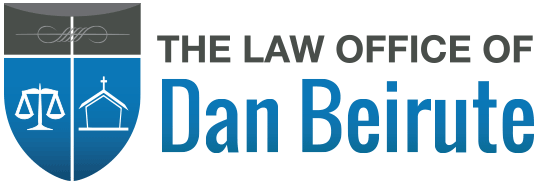
Filing for Tax-Exempt Status
Starting a Church, Ministry, or Charity
The law firm of Dan Beirute can assist you in forming a church or ministry corporation in any state. We incorporate churches and ministries, charities, schools, endowments, title holding companies, community development corporations (CDC’s), integrated auxiliaries, private foundations, etc. This work involves drafting articles of incorporation, filing the articles of incorporation with the state of your choice, preparing bylaws, obtaining the federal identification number, preparing minutes of the initial meeting of the directors and officers, and providing a corporate book and seal.
We also apply for federal income tax exemption, also known as 501(c)(3) status, for churches and ministries and other kinds of non-profit corporations. This process involves preparation of the IRS Form 1023 or Form 1024 and filing the form with the IRS. We then communicate with the IRS concerning the application, so you don’t have to.
Should a religious ministry apply for 501(c)(3) status?
Yes. Ministries are required by law to apply for 501(c)(3) status in order to receive exemption from federal income tax and in order to be able to receive tax deductible donations. Failure to file for the status within 27 months after the date of incorporation will cause the ministry to become, in essence, a for-profit organization.
Should a church apply for 501(c)(3) status?
This is a common question asked by church leaders, especially leaders of churches that have been in existence for many years without applying for the income tax exemption. Some people are under the false impression that applying for 501(c)(3) status causes a church to become subject to IRS rules that otherwise would not apply to a church. This is not the case. Churches are already subject to IRS regulation, even without specific recognition of 501(c)(3) status. For example, a church is prohibited from endorsing or opposing candidates for political office, regardless of whether the church has received tax exempt status. The same holds true to the rule that allows for taxation of income which a church earns from secular business activity. The only way to avoid the application of IRS rules to a church is for the church to waive its tax exemption and to pay income taxes to the IRS. This is certainly not an attractive alternative.
Churches do not have to apply for 501(c)(3) federal income tax exemption.
To be clear, churches are presumed by law to be exempt from income taxes, even without applying for exemption. (This is not the case for ministries, which are required to apply for the exemption.) However, churches should strongly consider applying for exempt status, in order to receive written documentation of 501(c)(3) income tax exemption from the IRS. Often, donors intending to give large gifts will require proof of a church’s 501(c)(3) status, in order to verify the deductibility of the donor’s gift. State and local government will often also request written verification of a church’s exempt status, when the church applies for property tax exemption, sales tax exemption, zoning variances, etc.
Contact Dan today to ask questions, to establish a church or ministry, or to obtain 501(c)(3) status for your church or ministry.

